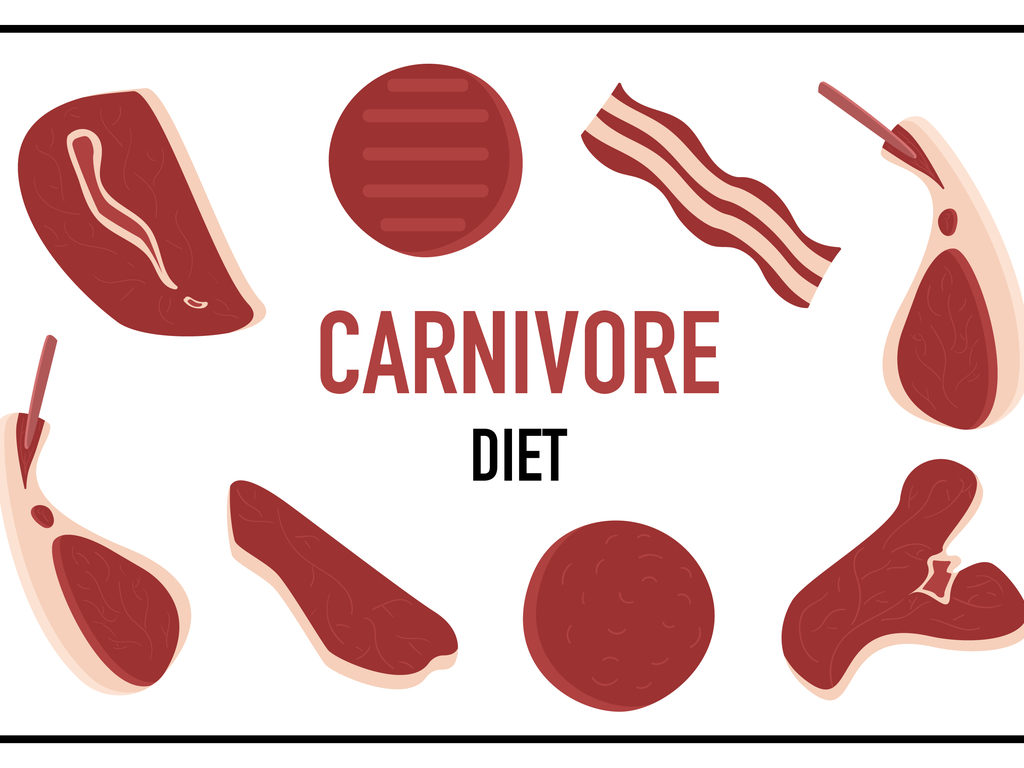First, I’d like to give a bit of history on how and why the modern-day carnivore diet came about…Our human ancestors had a much different relationship with food than we do today. They had to work for every bite they consumed, and they needed to store any excess to cover times of scarcity. Their bodies evolved to support them in this. When they ate, their bodies released insulin so that they could use the food they ate for energy. When they were hungry, they tapped into their fat stores for energy.
Today, our lives are different. We’re eating almost constantly, which means that our bodies are churning out insulin constantly and storing fat like it’s an Olympic event.
There’s a simple way to stop this process: by going back to the way our ancestors ate. Our ancestors’ diets tended to be high in meat, fish and even insects, and they weren’t sitting down to three meals and a few snacks a day. Instead, they often ate once or twice a day, depending on the success of their hunts, and they essentially fasted the rest of the time. Switching to a low-carb diet like the carnivore diet and intermittent fasting can help you get the results you want.
What Is the Carnivore Diet?
The carnivore diet is exactly what it sounds like it is: a diet for carnivores. It consists of animal-based products, including fish and meat but excluding fruits, vegetables, grains, and legumes. It was developed based on the idea that our human ancestors ate primarily meat and fish, and that modern diets, which are high in grain and sugars, are largely to blame for obesity and chronic disease. While somewhat similar to other low-carb diets, such as paleo and keto, this diet virtually eliminates all carbs.
What to Eat on the Carnivore Diet
Nearly all animal-based foods are green-lighted on this diet, but you still might need to keep an eye on what you eat. Some of the best things to eat include:
- Beef
- Chicken
- Pork
- Lamb
- Salmon
- Whitefish
- Turkey
- Organ meats
- Sardines
- Eggs
You can also enjoy some heavy cream, hard cheese, and butter, but you do need to limit your intake of dairy to low-lactose products. Since it can be hard to reach your daily energy needs on protein alone, look for fattier cuts of meat.
Instead of drinking plant-based beverages, such as tea or coffee, try bone broth, which is rich in nutrients and can help combat inflammation.
The Benefits of Becoming a Carnivore
Eating all-meat might not sound appealing, especially if you’re used to a fairly varied diet. However, going carnivore can have some pretty unexpected benefits worth considering.
First, protein is extremely satisfying. Eating more protein can keep you feeling fuller longer, which can lower your overall calorie intake and help you lose weight. Protein also helps build muscle and boost your metabolic rate, which is also critical for weight loss.
Second, more protein means less residue. High-carb diets and diets high in vegetable matter result in more waste products and undigested matter. Meat is primarily protein and fat, which are absorbed by the body, leaving little behind in the GI tract. This means less waste and less inflammation, which can be particularly beneficial to people with IBS, IBD, and other gastrointestinal problems.
Next, following a carnivore eating plan allows you to minimize your exposure to anti-nutrients, which are compounds that can interfere with nutrient absorption. Plant-based diets can be high in a wide range of anti-nutrients and inflammatory compounds, including tannins, oxalates, and phytates, leaving your body deprived of critical nutrients and potentially increasing your risk for diseases linked to deficiencies, such as osteoporosis.
Finally, going carnivore can change your gut microbiota. The microbiome of your gut can affect virtually every part of your body. It’s been linked to everything from chronic inflammatory disease to obesity. Eating an animal-based carnivore diet transforms the microbiome of your gut in just 48 hours, decreasing the microbes that metabolize plant matter and boosting those that tolerate bile instead. This could transform your health almost overnight.
A Word of Caution
The carnivore diet might not be right for everyone, including those with kidney disease or those who are pregnant or lactating. You might also need to monitor your micronutrient intake carefully to ensure you’re getting everything you need to be healthy.
The Carnivore Diet and Intermittent Fasting
As mentioned earlier, protein and fat are high-satiety macronutrients, which means they fill you up and signal to your brain that you’re full. Many people who switch to carnivore eating styles find that they are less hungry and eat smaller meals and less frequently when they eat only meat. If you’re ready to super-charge your way of eating, then combining a meat-focused diet with fasting is a great way to do it!
*One of my favorite resources for the carnivore diet and all the benefits of choosing this way of eating is an excellent, informative blog from Carnivore Aurelius. Check it out at the following link: Carnivore Blog

